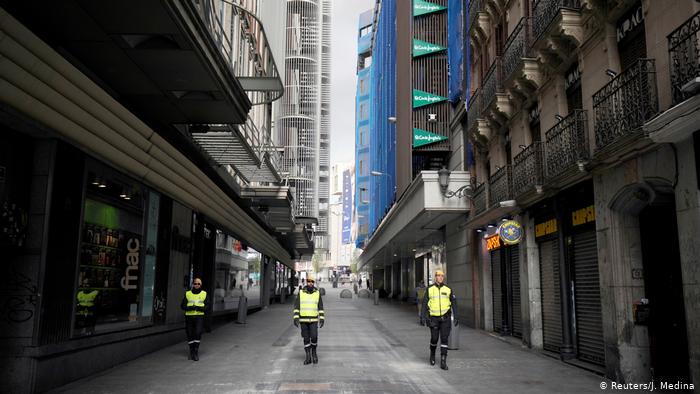Countries across Europe have significantly curbed public life in order to halt the spread of the COVID-19 outbreak. DW breaks down what life in lockdown means and how long the measures are expected to last.
Italy
Restrictions in place until April 13, could extend to July 31
Italy issued a nationwide lockdown on March 9, ordering its 60 million residents to stay at home. Schools, universities and all non-essential businesses are closed — with supermarkets, banks, pharmacies and post offices allowed to remain open. Travel within Italy has been banned except for health reasons or urgent matters.
People in Italy are only permitted to leave the house under certain circumstances, including: solitary exercise close to home, going grocery shopping or going to the doctor. They must print out a certificate at home declaring their reason for leaving the house, which will be checked by police. Those who violate the lockdown face fines between €400 to €3,000 ($430 to $3,227) or up to three months in jail.
In the final days of March, police cracked down on looting as citizens who claim they have not received government financial aid became desperate for food and necessities.
The original deadline of April 3 was scrapped on March 27. The deadline is now April 13, but is expected to be extended even further, perhaps as far as July 31.
Spain
Restrictions in place until April 11
The Spanish government declared a state of emergency on March 14, issuing a general confinement order for more than 46 million people.
Non-essential shops and schools have been ordered to shut, as well as hotels and tourist accommodation. Spain also closed its external borders with its European neighbors. People are limited to only leaving their homes to go to the pharmacy and grocery shopping. Outdoor exercise is also banned, except for taking a dog on a walk. Hundreds of thousands of police and military personnel are enforcing the lockdown.
Following their biggest one-day increase in deaths on March 28, Spain announced a toughening of the measures. All non-essential workers will have to stay home completely for two weeks until April 11, when Spain will review whether to extend the lockdown.










